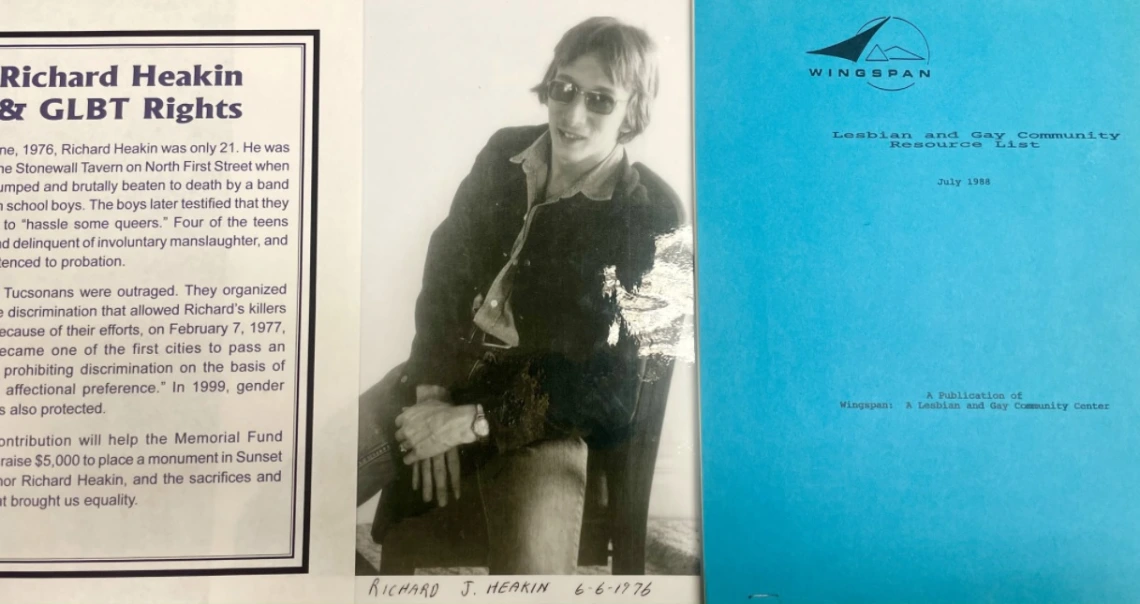Bruce Cole papers

Ephemera from the Bruce Cole papers, documenting the Richard Heakin murder case and LGBTQ resources in Tucson.
Collection area: Arizona Queer Archives
Collection dates: 1976 to 2008
This collection is primarily composed of papers, letters, news articles, photos, and newspaper clippings about Richard Heakin. Heakin was a 21 year old gay man who, in 1976, was beaten to death outside a gay bar in Tucson. Also included are materials on the Richard Heakin Memorial Committee, a committee in Tucson, AZ dedicated to honoring Richard Richard Heakins life with a memorial, as well as well as bringing LGBTQ rights out into the open; the Tucson Commission on (GLBT), the official advisory body on GLBT issues for the City of Tucson; and Wingspan, an organiation with programs to keep queer people in Tucson safe and supported. They work against violence, abuse, and discrimination in the community. This collection is part of the Arizona Queer Archives (AQA), a community focused archive through the Institute for LGBT Studies at the University of Arizona. It was transferred to Special Collections in 2020.
Bruce Cole is a Tucsonan, LGBTQ activist, and a wittness to the murder of Richard Heakin. Richard Heakin was a 21 year old gay man from out of town. He visited Tucson in 1976 and was brutally beaten to death outside a gay bar by a group of high school boys. Cole was bartending on the night of the murder. He became a prominant advocate and activist in the Tucson queer community, worked with Wingspan/The Tucson Commission on GLBT Issues. He was one of the individuals involved with the Richard Heakin Memorial Committee who made the Richard Heakin Memorial in downtown Tucson.
A collection guide explains what's in a collection. New to using our collections? Learn how to use a collection guide.
Collection guideAccess this collection
Visit us in person to access materials from this collection. Our materials are one-of-a-kind and require special care, so they can’t be checked out or taken home.
How to cite
Learn how to cite and use materials from Special Collections in your research.
